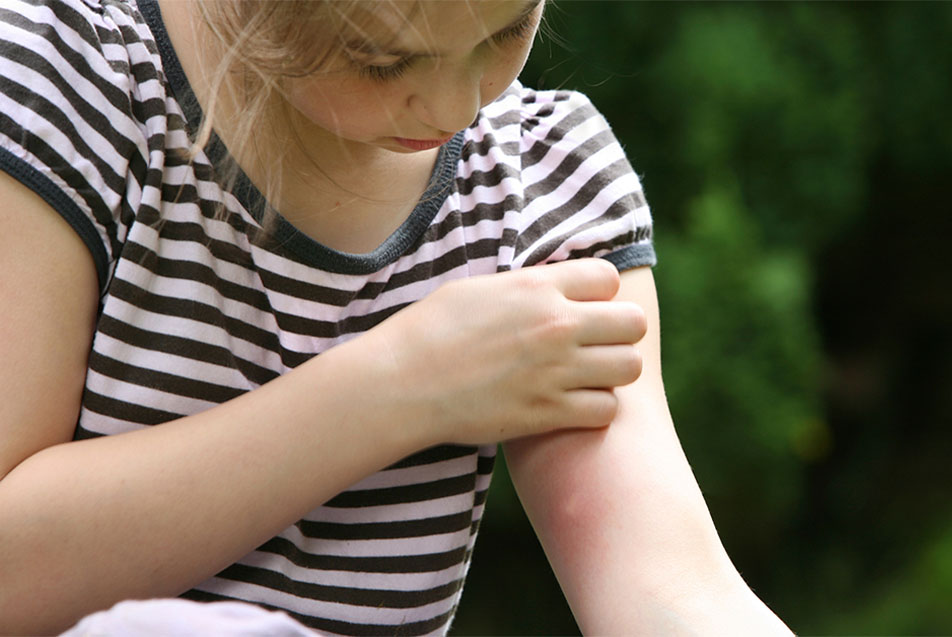

One of the best things about the warmer months is the ability to spend more time connecting with nature in the great outdoors. Depending on your allergies, however, this peace can easily be disturbed by pesky insects and their brutal bites. Anna Trubey, NP, Parkview Physicians Group – Family Medicine, Bryan, offers essential information for anyone who might suffer a severe reaction from unfortunate stings.
In general, insect bites and stings will cause a skin reaction right away and can be treated at home. Fire ant, bee, wasp and hornet stings are usually painful. Whereas, bites caused by mosquitoes, fleas and mites usually cause more itching than pain. An oral antihistamine and over-the-counter anti-itch cream (hydrocortisone) may be helpful for some, but should be used under the direction of your primary care provider, especially for children.
Some adults and children may have a severe life-threatening reaction to bee stings or insect bites known as anaphylaxis. Symptoms can occur quickly and include the following: chest pain, face or mouth swelling, trouble breathing or swallowing, fainting or dizziness, abdominal pain or vomiting and rash/flushing. In the event of an emergency like this, call 911, reassure the person and try to keep them calm. Use their EpiPen if they have one and stay with them until medical help arrives.
If you have an EpiPen be sure that it is not expired, that you have it with you wherever you go and that family and friends are aware of your allergies and know how to use the pen in an emergency.
Prevention.
- Avoid perfumes and floral clothing. Do not swat at stinging insects and eat with caution when outdoors. An open can of soda or garbage can might attract them.
- Mosquitos are most active at dawn and dusk and breed in standing water. Be sure to empty toys, buckets and old tires to keep mosquitos from multiplying.
- After playing outside check skin and hair. Wear long sleeved shirts and tuck pant legs into socks. Use an insect repellant with DEET for kids older than 2 years old and avoid tick- and mosquito-infested areas.
- Spiders like to hide in dark quiet places, such as wood piles, attics and garages. Be sure to check your boots and shoes before putting them on especially if they sit outside or in a garage or basement.
Treatment.
- Remove stinger by scraping it away with a straight-edged object or credit card. Do not use tweezers, as this might squeeze more venom into the wound.
- Remove ticks with tweezers. Grasp at the head or mouth and pull firmly until the tick lets go. Do not use a rocking or twisting motion. Wash site with soap and water and monitor for any skin changes.
- Remove nearby jewelry and other constricting items for swelling.
- Wash site with soap and water and continue to keep area clean.
- Cool compress (ice wrapped in a wash cloth) on for 10 minutes and off for 10 minutes, then repeat.
When to get help.
- If having anaphylactic symptoms or if stung in the mouth, as swelling might block the airway.
- If you see the following after a tick bite: red bull’s-eye-like rash (Lyme disease) or red dots on the ankles and wrists (Rocky Mountain spotted fever).
- If you suspect a bite from a black widow or brown recluse spider.
- If the bite area seems infected with increased warmth, redness, swelling, pain or pus.
References (APA)
Nemours, Kids Health. (2014). Bug bites and stings
U.S. Department of Health and Human Services, National Institutes of Health. (2015). Insect bites and stings.



